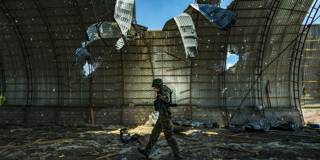The European Union’s cumbersome and narrowly defined regulations for public procurement and spending are not simply inadequate; they are dangerous. They weaken the bloc’s ability to protect itself from a broad range of Russian hybrid attacks while prolonging Russia’s aggression in Ukraine.
PARIS – The European Union’s spending rules and public-procurement processes are plainly inadequate to the threat posed by Russia’s full-scale invasion of Ukraine. If the World War II Allies had been subject to such strictures, they would have been unable to buy landing boats for the invasion of Normandy for a landing in 1944, equip General Charles de Gaulle’s Free French Army, or issue war bonds in time. The EU’s regulations undermine its capacity to mitigate the war’s effects on Europe itself, weaken its ability to protect itself from a broad range of hybrid attacks, and prolong Russia’s military aggression against Ukraine.

PARIS – The European Union’s spending rules and public-procurement processes are plainly inadequate to the threat posed by Russia’s full-scale invasion of Ukraine. If the World War II Allies had been subject to such strictures, they would have been unable to buy landing boats for the invasion of Normandy for a landing in 1944, equip General Charles de Gaulle’s Free French Army, or issue war bonds in time. The EU’s regulations undermine its capacity to mitigate the war’s effects on Europe itself, weaken its ability to protect itself from a broad range of hybrid attacks, and prolong Russia’s military aggression against Ukraine.